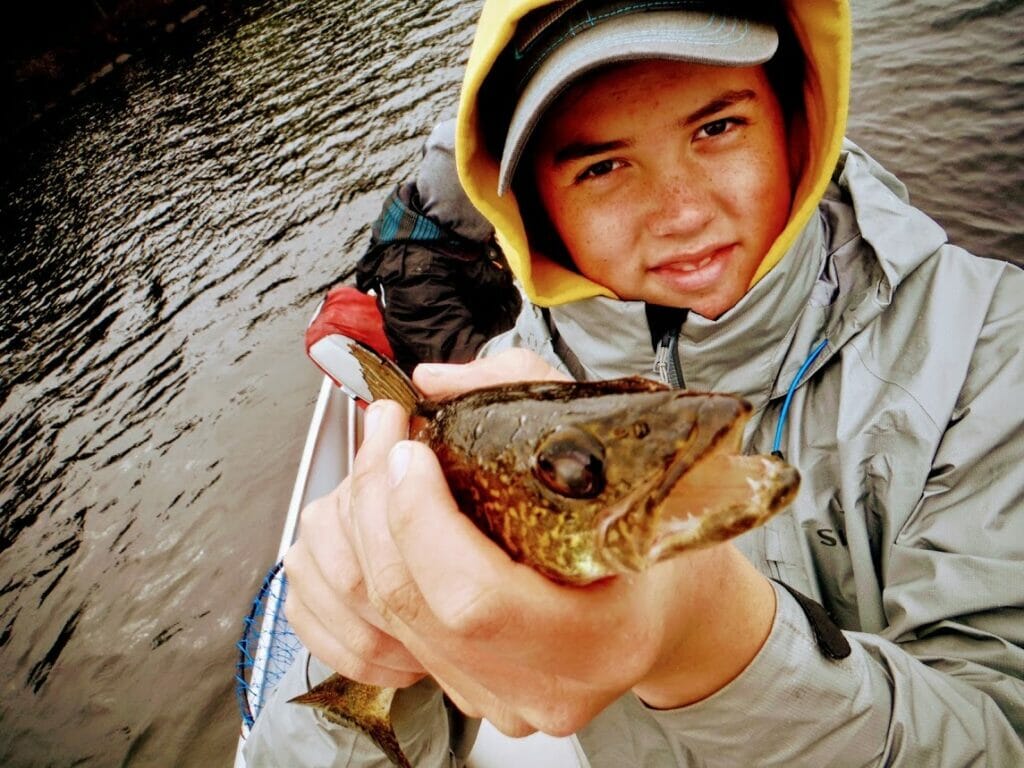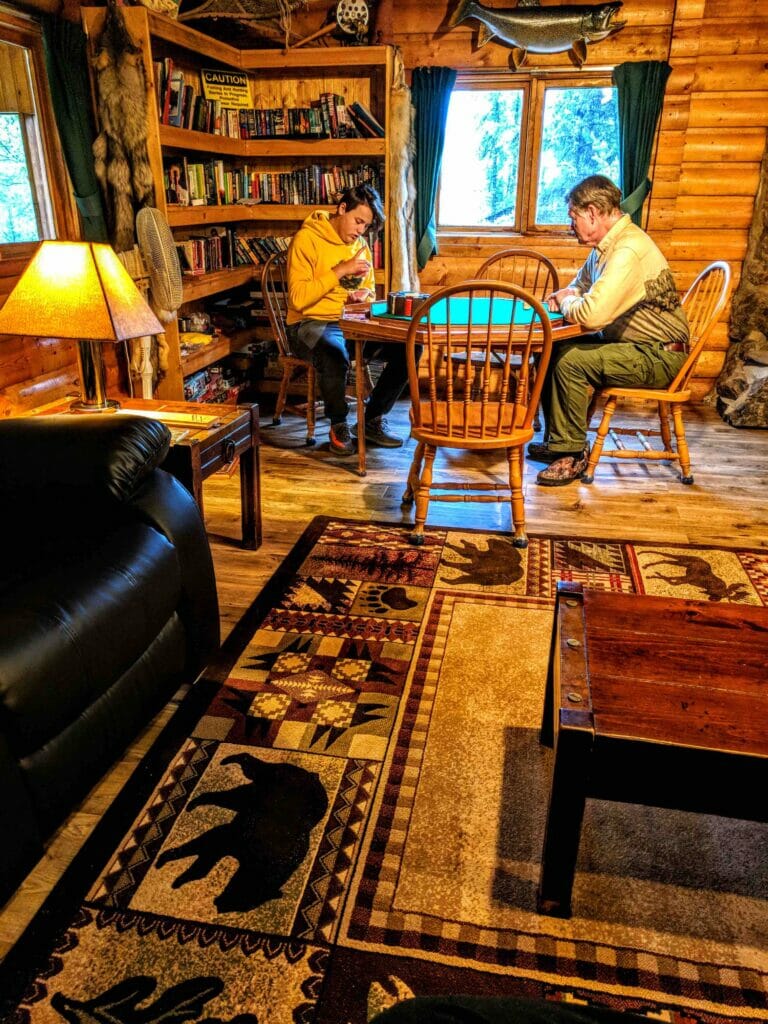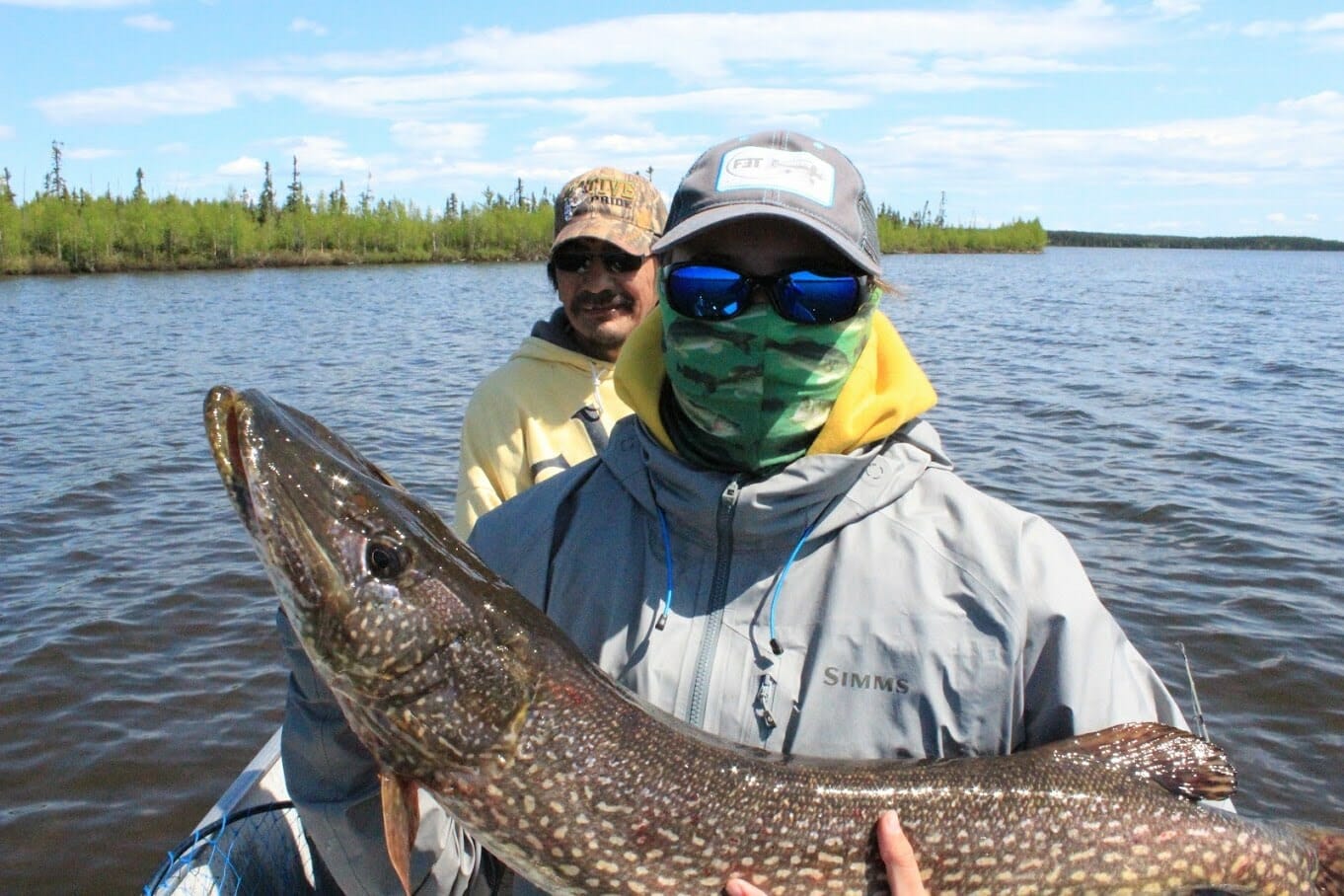Nature deprivation is a real thing, and I’m witnessing the impacts of both being exposed to the wild and willingly foregoing exposure in both of my kids.
My daughter loves the outdoors. She’s working her third year in Grand Teton National Park, and not long ago, we exchanged photos and video via text of our respective campfires—hers in the shadows of the Tetons and mine on the high desert of southern Idaho, where I’d camped by the Snake River while chasing carp with my fly rod.
Camping and being outside when the sun slides behind the mountains and the moon and stars take over is a visceral experience. A crackling fire interrupted by the songs of coyotes as they awaken with the night and prepare for the hunt is among my favorite things. If I’ve enjoyed a cocktail or two, I’ve been known to howl back at the pack and get satisfying answers delivered through the dark over water and sage. My daughter shares my passion for being outside in the wild. It’s soul-building.
My son, on the other hand, isn’t an outdoors kid — or at least I didn’t think he was. He’s more tuned into the digital world, where screens and controllers and remote controls have become his escape. He’s a great kid—charming, polite and in possession of a gentle heart. But he finds his Zen in a completely different environment than I do. I’m troubled by it, but not because it keeps him from enjoying what I love, but rather because I believe it prevents him from experiencing life in its more primal form.
Sadly, he’s not alone in his wholly crafted passion. He’s part of an entire generation of kids who have no idea what lies over the next ridge, let alone what fish swims in what waters, or where grizzlies roam and wolves gather to hunt. He’s part of a “Lost Boys” conglomerate of kids who were allowed to soak into a TV or computer screen rather than forced or cajoled into going outside.
And yes, I realize that I’m largely to blame for this. I’ve never been one to force feed my kids the passion that I have for fishing and the outdoors in general. Instead, I’ve let them find their own way, hopeful that they’ll come to the realization that looking up from the screen now and then is good for their souls.
Nature Deficit Disorder, an unofficial “condition” originally coined by author Richard Louv (Last Child in the Woods, 2008), may not be a medically recognized ailment, but I’ve seen its impacts on kids like my son. Above, you can watch the great interview my colleague Shauna Stephenson did with Richard just a couple of weeks ago on Facebook, and Richard does a great job explaining what NDD really is.
I’ve witnessed a complete disconnect between my son and his gaming buddies and the world that exists just out the front door. As a kid, I roamed suburban Denver on a banana-seat bike and mined the ditches for crawdads and carp. My son roamed virtual worlds of MineCraft and killed zombies with an ever-impressive array of virtual military weapons, all while shouting into a microphone at an online community of like-minded kids.
As a kid, I knew to be home when the streetlights turned on. As a parent, when my son lived with me, I rarely had to wonder where he was—he’d be either in front of a screen or nestled next to an electrical outlet watching a string of YouTube videos while his phone charged.
It’s not as if he lacked the curiosity to be properly indoctrinated into the outdoors—a few years back, as we camped on the banks of a desert spring creek at the foot of Idaho’s tallest mountains, he pointed to cave carved into the rocks on a distant ridge.
“I’m going up there,” he said definitively. He took the two dogs and wandered off. It was the first and only time I ever became worried about his whereabouts—two hours passed before his sister and I climbed into the truck and motored off to find him. And find him, we did. He and the dogs were resting on a rock at the mouth of the cave after a four-mile, mostly uphill trudge. He was exhausted. He was sweaty. And he was grinning ear to ear with a real sense of accomplishment. To this day, I’ve never been more proud of him. He can do these things. He does have the innate desire to discover what lies beyond, but I had to get him out of cell range for him to resort to actually taking on a real-life quest. If he had a choice in the matter, he wouldn’t have left his phone untended.
As a devout worshipper in the temple of the outdoors, this heresy gets under my skin. I had given up on the idea that my son might one day voluntarily discover the wonders of the natural world or come to appreciate the tug of a trout at the end of a fly line. A couple of years ago, I took him on an involuntary outdoor “internship” to the north woods of Manitoba, where he was completely out of cell range. He was, by all accounts, forced into an existence where connectivity meant having to have a conversation with other guests at the lodge. I shouldn’t have been surprised that he performed admirably — his innate charm came through, and he made fast friends.

Over eight days in the north woods, he enjoyed his first shore lunch. He witnessed a wild part of the world that, over the last decade, has certainly changed me. I hope it changed him, to some degree. He’s a gentle boy with honestly good intentions. But with everything at his fingertips, there was worry on my part that he would never develop the motivation to see and try new things. While he was still somewhat under my thumb, I worked to remove him from this digital world as often as I could, with varying degrees of success. After allowing him to become consumed by the unholy world of video games, social media and constant connectivity, I felt obligated as a parent to force-feed some wilderness down his throat.
There was no small amount of guilt involved then—I accepted the blame, and I was happy to accept the responsibility for ensuring that he, at the very least, had an idea of what lies beyond. I had witnessed his curiosity, his yearning to discover. These were the traits I could use as building blocks to encourage him to look up now and then and wonder what else was out there.

This summer, he, like his sister, took a job at Grand Teton National Park. He spent his summer tooling around on a golf cart on the shores of Jackson Lake, cleaning campground restrooms and enforcing campground rules. He’s taken up kayaking and met some other young people who liked climb — he’s been on multi-mile hikes into grizzly country and now wants to spend the winter in the Colorado ski country, where he can work for the same company that employed him over the summer, but also put his snowboard to good use. His screen time is pretty limited these days — the internet service at the campground is kind of spotty, so that curiosity has bloomed.
To say I’m proud is an understatement. He remains the kind-of-heart boy he’s always been, and the fact that he is so very close to being a man is a bit painful. But I’m grateful, too, that he has apparently seen that being outside has its benefits, both for the body and the soul. These days, I’m equal parts proud and terrified — this is the kid that, two years ago, couldn’t leave his phone unattended. This fall, he’s planning to climb Mt. Moran.
And I know, as a parent, I’m not alone. The notion that “he’ll figure it out on his own” is convenient, but I no longer believe those words hold much promise. I had penance to pay for letting his digital dependence develop in the first place. While much of what he chooses to do with his life is on him, that one’s on me.
My hope, as it always has been, is that he finds something that fulfills him. And I might have gotten lucky — he might be an outdoorsy kid after all.



